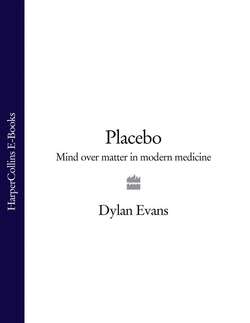Читать книгу Placebo: Mind over Matter in Modern Medicine - Dylan Evans - Страница 16
THE HIERARCHY OF EVIDENCE
ОглавлениеThe hard-won lessons about the relative value of anecdotal and statistical evidence have been condensed by medical researchers into a simple formula that is now referred to as the ‘hierarchy of evidence’.23 Individual case-histories and clinical vignettes are quite properly located at the bottom of the ladder. Strictly speaking, then, we should not dismiss such stories altogether, but rather emphasise their limited evidential value. Various statistical methods of research are assigned different grades on the hierarchy of evidence, with randomised controlled trials coming very near the top. The pinnacle of the hierarchy, however, is reserved not for individual clinical trials, but for systematic reviews and meta-analyses. In these research papers, all the clinical trials on a particular topic are hunted down and their results analysed by means of yet more statistical devices.
The prestige attached to meta-analysis, a set of statistical techniques developed in the 1970s, by medical researchers has not met with universal agreement. One epidemiologist, for example, has written that ‘meta-analysis begins with scientific studies, usually performed by academics or government agencies, and sometimes incomplete or disputed. The data from the studies are then run through computer models of bewildering complexity, which produce results of implausible precision.’24 It is certainly true that, since the techniques of meta-analysis first began to emerge in the 1970s, they have been refined into a somewhat arcane art form. Yet the fundamental idea that rigorous numerical methods should be used in summarising the results of clinical trials is surely sound.
Nevertheless, there is a delicious irony about the search for ever greater evidential support in medicine that is behind the rise of meta-analysis. The discounting of anecdotal evidence is certainly in accord with the spirit of science. When the Royal Society, Britain’s premier scientific institution, was founded in 1662, it adopted as its motto the Latin phrase Nullius in verba – nothing by word alone. Rejecting the deference to authority that had stifled the advance of knowledge for so long, the motto nicely sums up the emphasis on experiment and observation that lies at the heart of the scientific endeavour. Yet in those days it was much simpler for scientists to observe things for themselves. There were only a handful of them, so they could all fit quite comfortably in the same room, and witness important experiments directly. It seemed as if the vagaries and Chinese whispers that beset the reliance on word of mouth had been forever vanquished. The old days, when knowledge was all about scholarship – reporting and commenting on the reports and commentaries of others – had been superseded by an insistence on first-hand observation.
Today we seem to have come full circle. The new regents of medical research can compile their meta-analyses without putting a foot outside their office, let alone actually speaking to a real patient. The papers that sit at the top of the hierarchy of evidence are works of pure scholarship, reports of reports. The ‘methods’ section contains, not a description of a laboratory procedure, but a string of terms that make up the ‘search strategy’ used to extract references to medical papers from one or more of the huge electronic databases, such as Medline, that are the present-day equivalent of the vast medieval libraries. And the conclusions of these papers must clearly be taken on trust, as it is impossible for every reader – busy consultants and harried doctors – to check the sources for himself.
Beecher’s infamous 1955 paper on the ‘powerful placebo’ is a case in point. Although lacking the sophisticated statistical apparatus of current meta-analyses, it contains the seeds of the modern idea. It collects a set of clinical trials – no mean feat in those days, when clinical trials themselves were relatively few and far between – and extracts one or two simple figures which everybody remembers. A placebo effect of 35 per cent! This astonishing figure soon became set in stone, transformed into truth by dint of repetition, quoted and requoted by hundreds of doctors who never read Beecher’s paper, let alone the studies which he reported. The experimental evidence was trumped by the word of authority, in a parody of the whole enterprise of scientific research. The founders of the Royal Society would have turned in their graves.
